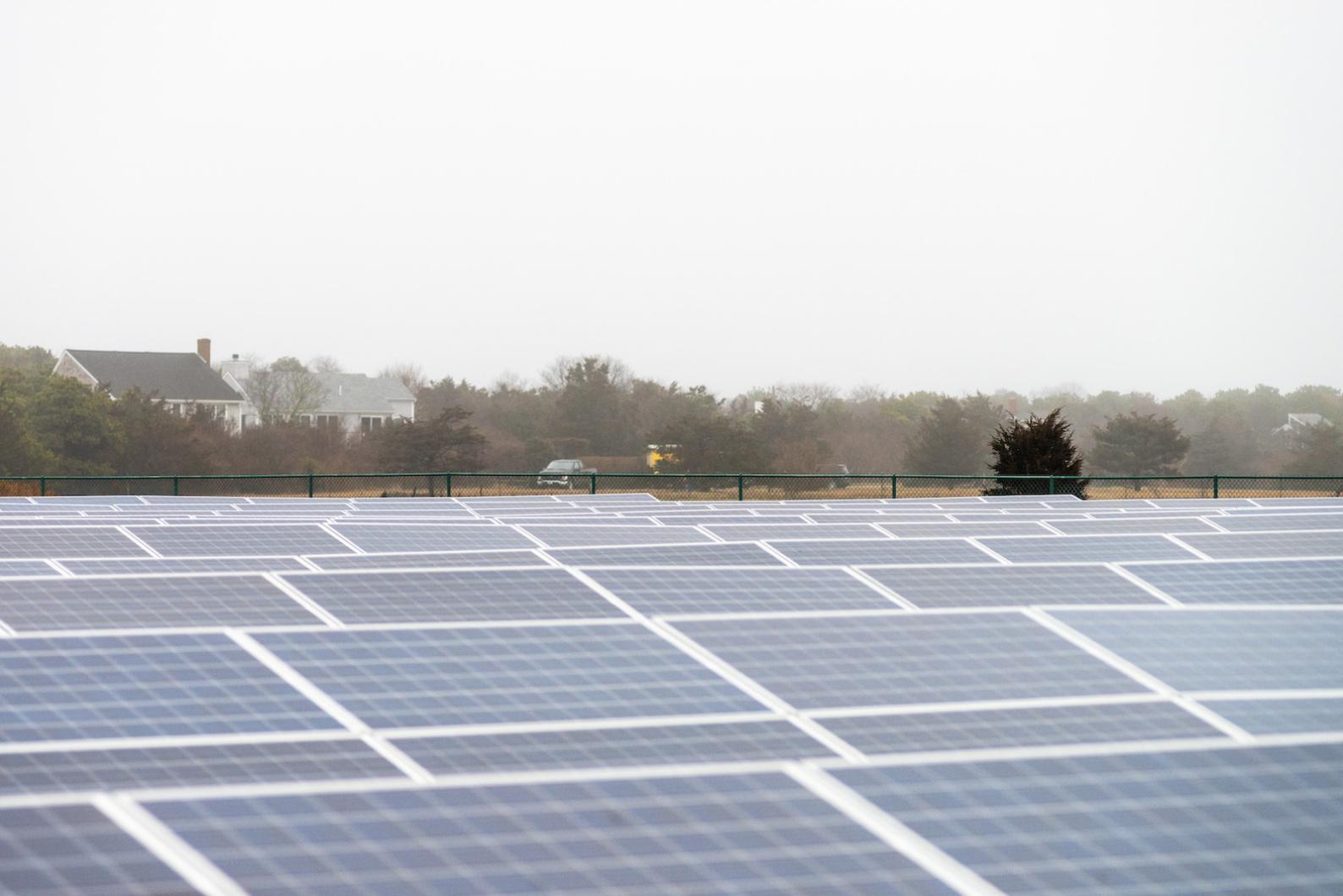A recent ruling from the state could help solve the regulatory gridlock that has left several Island solar energy projects in limbo for years.
Since 2022, Eversource has been telling Vineyarders that the utility can’t take any more solar projects larger than 15 kilowatts because of a lack of capacity at a substation in Falmouth. But on June 5, the state Department of Utilities approved Eversource’s plan to upgrade its infrastructure on Cape Cod, allowing the long-awaited construction to move forward.
Several Vineyarders said the DPU’s approval on Eversource’s application is a major step toward allowing more solar on the Vineyard to meet the state’s climate goals. But they warned that Vineyard projects may still not be able to connect for months, if not years, until the millions of dollars of work is complete.
“It was a milestone we needed to reach,” said Kate Warner, the Martha’s Vineyard Commission’s energy planner. “But it’s just a milestone and we need to now hear what will happen for the region.”
Eversource’s plan includes about $170 million in upgrades on Cape Cod, where the Vineyard ties into the New England electrical grid. The utility will add two new distribution lines at its Falmouth substation, as well as other improvements across the peninsula.
Rob Meyers, the director of energy technology at Island-based developer South Mountain Company, said he’s had several projects held up in the queue, but he was glad to see this regulatory hurdle cleared.
“It’s really exciting to see some progress,” Mr. Meyers said.
He hoped that Eversource would allow projects of a certain size, say 60 kilowatts, to immediately tie into the grid so some smaller projects could get rolling.
“So many Vineyard projects are that smaller scale,” he said.
Eversource has not said exactly how it plans to implement its new plan, but the company expected the Cape work would happen faster than in other areas of the state.
“With the department’s order, Eversource is immediately beginning work on a phasing plan to develop a timeline for necessary local upgrades,” said spokesperson William Hinckle. “With no major substation upgrades required on the Cape, the company anticipates a shorter timeline than is required for other similar projects across Massachusetts.”
Eversource applied to the DPU in 2022 to beef up its eletrical equipment in Falmouth and the rest of Cape Cod in order to handle the growing demand for solar energy on the Cape and the Vineyard. Without the upgrades, the Cape’s infrastructure was unable to handle more power flowing from solar projects back into the grid, putting all the projects in the queue on indefinite hold.
One of the major sticking points for the DPU during its review was how the upgrades would be paid for.
Currently, if a person wants to build a solar array, they have to cover the costs of any needed electric upgrades. For instance, if a new transformer is needed to handle a new solar farm, the person developing the solar farm would need to pay for it.
Instead of project developers shouldering all of the costs, Eversource proposed shifting some of it onto the region’s ratepayers, triggering the extensive review by the DPU. The utility’s predictions for the Cape Cod improvements would add about 26 cents onto a ratepayer’s monthly bill, or about .11 per cent, and cost solar developers $357 per kilowatt.
Mariel Marchand, a power supply planner at the energy adovcate organization Cape Light Compact, said the development is an overall positive for the Island, but noted that Eversource has four years to finish its work.
“It’s good that these projects are going to be able to come online,” she said. “But four years is not quick.”







Comments (3)
Comments
Comment policy »